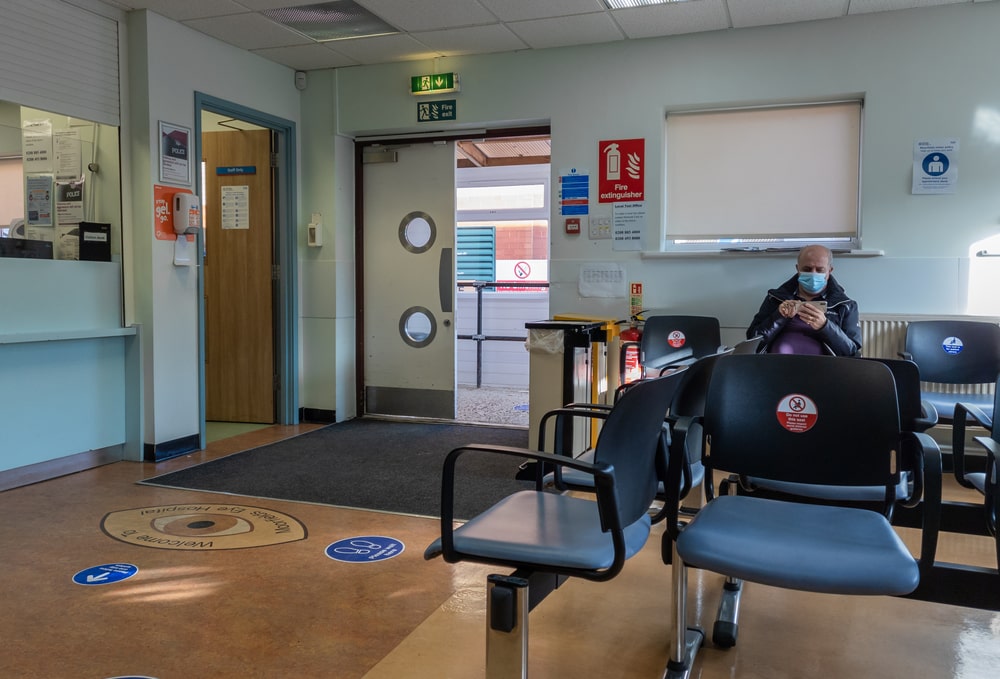
The NHS is experiencing a workforce crisis. It currently has 133,000 unfilled posts, and the Nuffield Trust recently estimated in its evidence to the Health and Social Care Committee that in May 2021 there may have been up to 12,000 doctor vacancies in the UK.
For secondary care, there is a huge focus on consultant recruitment to fill these gaps. After all, consultants are our most highly trained, skilled and specialised medical practitioners, who supply expert care to patients across the country 24/7 and form a large proportion of the secondary-care workforce. It is right there should be a focus on recruiting more consultants alongside GP colleagues in primary care. Initiatives such as the Health Education England (HEE) apprenticeship scheme and the opening of new medical schools to increase training places all aim to do this in the long term.
But the current route for becoming a consultant in the UK requires years of postgraduate training after qualifying from medical school. After two foundation years and two core training years, there are typically five to seven years of specialty training run by HEE, the body responsible for training doctors in the UK. The idea behind increasing medical school places, seemingly, is to “backfill” the undergraduate places with a view to recruiting the workforce of the future. At first glance, this seems logical but currently there are concerns about sufficient training places for these trainees; we struggle to train existing doctors before we start undergraduate training for more doctors.
[See also: How to save the NHS]
In his previous role as chair of the Health and Social Care Committee, the current Chancellor Jeremy Hunt was incredibly vocal regarding his views about the workforce shortage and the numbers that would be needed over the next ten years – according to the committee, workforce projections say an extra 475,000 jobs will be needed in health by the early part of the next decade. These figures are absolutely necessary to make a fully functional workforce plan and recruit accordingly, but it’s also clear that we simply don’t have the capacity within the current system. With an ageing population that has more complex disease profiles, the current training model will not be enough.
The traditional training path has benefits but it’s clear that the number of training places is not sufficient, despite pleas to increase them. We have become fixated on trying to “fix” the traditional route, while ignoring another solution right in front of our eyes.
This involves another group of doctors who provide critical services alongside consultants – specialty and specialist (SAS) doctors, who have at least four years of postgraduate training.
These doctors vary in their experience. They are not consultants, nor do they form the “other” group often incorrectly referred to as junior doctors, better known as doctors in training. Doctors in training are those on recognised, formal HEE training programmes in their chosen specialty. SAS doctors fall out of this group and, alongside their locally employed counterparts (trust doctors employed directly by hospital trusts, such as those in clinical fellow posts), currently form the largest subgroup of doctors in the UK.
We urgently need to unleash the potential of these thousands of experienced, valuable and actively working doctors in the UK. The most senior ones are vastly experienced, and the generic grade of specialty doctor given to many of them does not reflect their skills. Indeed, a new specialist-grade contract which replaced an older associate specialist contract is now live. More widespread use of this grade would support our most experienced non-consultant SAS doctors to be better remunerated, valued and become more active members of the senior medical workforce by complementing consultants.
[See also: The truth behind the worst NHS crisis]
Not only could these doctors thrive at specialist level, providing valuable support for consultants on hospital staffing rotas where gaps exist, but the provision already exists for senior colleagues to become consultants should they wish to. This is via a General Medical Council (GMC)-regulated alternative route known as the certificate of eligibility for specialist registration (or CESR) – essentially, an equivalence test for consultant competencies in the UK.
However, the process is not simple and the evidence building and equivalence checking that these doctors undertake, particularly for those who have worked outside of the UK, means that it is daunting. In a Health and Social Care Committee report last year, CESR was criticised for being “lengthy and opaque”, “complex, difficult and expensive”, and in need of “regulatory reform” to make it “proportionate and streamlined” to “assist in ethical overseas recruitment”.
If this process was improved, it could unlock huge potential for both the recruitment and retention of new consultants for our NHS at a vastly reduced time-scale compared with the traditional training route. This would support not only UK doctors but also international colleagues, and would open a whole new sustainable “alternative” supply route for consultants and the senior medical workforce.
To truly fill vacancies and bring the NHS up to capacity, we need to focus on establishing a clear and achievable workplace plan, the recruitment and retention of new doctors, and by incentivising existing senior doctors to progress through, for example, reforming the CESR process. Then we might begin to solve the NHS workforce crisis.
[See also: Focus on prevention to keep the NHS true to its soul]




